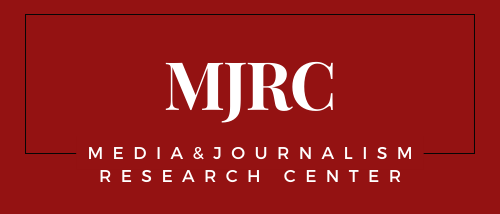How to Modernize Media Laws to Cope With Digital Change: New Study Published
In a world where digitization is transforming media content and online platforms are enabling global distribution, the urgent need to modernize media-related laws, such as copyright and data protection regulations, is undeniable, according to a new study issued today by the Media and Journalism Research Center and Maharat Foundation.
“In the EU context, we could witness a fundamental turn of the policy from a liberal economic perspective to a constitution-oriented approach, with a leading role of the Court of Justice of the European Union, aimed at opposing platform powers,” Krisztina Rozgonyi, the study’s author wrote. According to Rozgonyi, digital constitutionalism in the EU provided “significant regulatory solutions to protect fundamental rights and democratic values while balancing the need for technological advancement.”
In her work, Rozgonyi has analyzed and mapped the latest regulatory advancements within the EU. Focusing on four major policy areas that directly impact the media landscape, this study delves into the regulation of online platforms in relation to media content, copyright issues in the digital age, the protection of media freedom and pluralism, and the ever-pressing concerns of data protection and online privacy. One of the author’s conclusions is that EU’s legislation in these areas is offering “essential and meaningful insights” but also “tensions about the modernization of the law.”
Being part of a project aimed at improving media policy in Lebanon, the study uncovers insights from the EU’s media policy framework that could serve as a source of inspiration for Lebanese policymakers. “Importantly, protecting fundamental freedoms online should be balanced with other legitimate public policy objectives, with utmost care at setting the boundaries of state intervention,” Rozgonyi wrote.
The publication is part of the project entitled “Media Reform to Enhance Freedom of Expression in Lebanon”, implemented by Maharat Foundation, Legal Agenda and the Media and Journalism Research Center (MJRC) with the support of the Delegation of the European Union to Lebanon.
The study is available here.
Read more on the project page.
Photo: Use under Unsplash+ license
Invest in independent media research and join a community of practice.
Your contribution supports MJRC’s investigations and global analysis. As a supporter, you can receive early access to new findings, invitations to small-group briefings, inclusion in our Supporters Circle updates, and the option to be listed on our Supporters Page.
Contribute to MJRC
